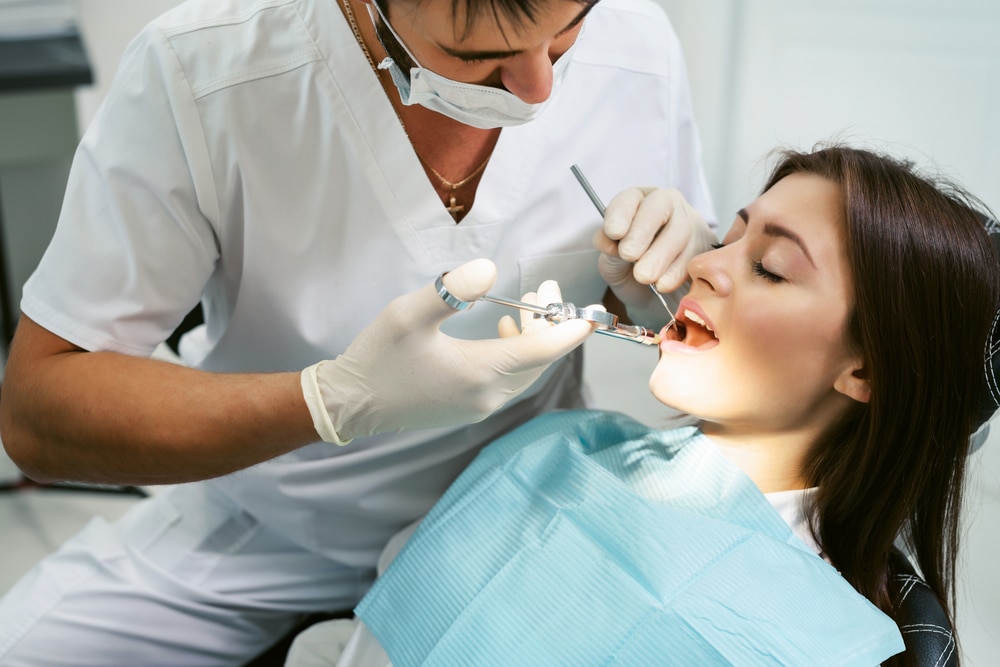Advanced IV Sedation/Anesthesia Services in Boulder, Brighton, and Denver, CO

Anesthetic / IV Dental Sedation / Anesthesia
Here at Denver Oral & Maxillofacial Surgery, we offer a few different options for anesthetic, dental sedation or anesthesia during your procedure or surgery. Our surgeons will help you make the decision regarding which of these types of anesthetic options would be best for you based on your individual circumstances as well as the surgery you’re undergoing.
The options below are the types of dental sedation we offer in our office, and a brief description of each.
Local Anesthetic
A local anesthetic will allow you to remain conscious and aware during your procedure. Lidocaine, a numbing medication, will be injected directly into the area that needs work, ensuring that you won’t feel any pain. This is an option for those receiving more simple procedures such as tooth extractions or minor gum surgeries.
Local Anesthetic With Nitrous Oxide
In this scenario, you would be given the local anesthetic, lidocaine, as described above. However, you would also be administered a mixture of oxygen and nitrous oxide, also known as ‘laughing gas.’ This medication would be given to you through a mask or a nosepiece. During this dental sedation option, you would remain conscious, but in an incredibly relaxed state. This can be used for the simple procedures or for more involved procedures like dental implants or the removal or your wisdom teeth.
IV Conscious Sedation
IV conscious sedation (“intravenous conscious sedation”) is sometimes also known as “twilight sedation.” It’s used mainly to help control anxiety and discomfort regarding your surgical procedure. The medicine is introduced into your system via a small IV, and it will help you be comfortable and calm throughout your procedure. You may not be asleep the entire time, but you will be in a “twilight state,” essentially drifting in and out of sleep but conscious. However, just because you’re conscious doesn’t mean you know exactly what’s happening. In fact, you probably won’t remember anything from the procedure. You’ll feel sleepy and relaxed; in some cases, this type of sedation may also make you feel euphoric.
How Is IV Conscious Sedation Different?
This type of sedation is similar to general anesthesia because the same type of medication is used. However, during IV conscious sedation the doses are much smaller. In the higher doses, this medicine will cause sleep and paralysis. For conscious sedation, the goal is to calm the patient and reduce anxiety using the smallest amount of medication possible. This is a safer option than anesthesia.
The duration of sedation will depend upon the drugs and doses being administered. Recovery is quick and most people won’t experience the side effects associated with general anesthesia. Your vital signs will still be monitored throughout the procedure to make sure that you don’t experience a deeper sedation.
Local Anesthetic With IV Anesthesia
This level of sedation can still be done in our office. Medication would be administered through an IV, and you would fall asleep shortly afterward. Your vital signs will be monitored throughout the procedure, and you will stay asleep the entire time. This type of sedation can be used for every kind of dental procedure, even the simple ones, depending on the level of your anxiety about your procedure. Please talk to our surgeons about any fears you may have about your surgery.
Hospital Or Surgical Center Anesthesia
Depending on the surgery you’re having, you may be admitted to a surgical center or a hospital. This will happen for those receiving surgeries like facial or jaw reconstructions, or for patients with certain medical conditions. In this scenario, an anesthesiologist would be the one administering the anesthesia and monitoring you throughout the surgery.
Please note that those receiving any kind of IV sedation will need to have a ride to and from our office, and avoid eating or drinking anything for at least six hours prior to surgery. We will provide you with any additional instructions before your surgery.
It’s very important to us that you’re comfortable and pain-free during your surgery. Please inform us of any medications you’re taking, any medical issues you have, or any anxiety you may be feeling about your procedure, so that we can help you decide which dental sedation option is right for you.